The Olive Garden of Medicinal Plants
The Olive Garden of Medicinal Plants
Zeytinburnu Medical Plant Garden stands out as the first and only medical plant garden in Turkey. Established in 2005, this private garden has a large area of 14 hectares and was realized in cooperation with the Municipality of Zeytinburnu and the Central Master Traditional Medicine Association. The main purpose of this unique garden is to research, produce, promote, protect, and educate the public about medicinal plants. More than 700 different medicinal plants are grown in the garden, and each one is carefully labeled. In particular, the QR codes found on the labels of some plants make it possible to access more information about the plants. In addition, a sustainable approach has been adopted in which plant waste is used as natural fertilizer in the field of compost.
The Olive Garden offers visitors a wide variety of activities. Educational workshops such as plant introduction trips, plant picking trips, plant drying workshops, natural cosmetics, soap and perfume making offer participants the opportunity to interact more closely with nature. There are also social areas such as special playgrounds for children, a relaxing tea garden for adults, and a book library. The Olive Garden of Medicinal Plants offers an interesting and educational experience for anyone who wants to both explore the natural world and learn about traditional medicinal plants.
Turkey's first garden of medicinal plants: Zeytinburnu Garden of Medicinal Plants
Turkey's rich heritage of medicinal plants contains profound knowledge and experience of healing resources from the past to the present. With the aim of preserving this wealth and passing it on to future generations, the Olive Garden of Medicinal Plants opened its doors in 2005 to offer visitors the country's magical world of medicinal plants. This garden, which is a meeting point for modern medicine as well as various traditional healing methods, is notable for its proximity to the Sea of Marmara and the proximity of historical cemeteries and hospitals.
A cultural crossroads: The garden is located around cemeteries and historical hospitals belonging to different religious groups, creating a space that combines different cultural and religious heritages. In addition to the medical use of medicinal plants, it also combines the spiritual and symbolic meanings of these plants in various cultures. The fact that it is located within walking distance of Yenikapı Mevlevihanı and the Halveti magazine founded by the Central Master emphasizes the importance of the garden as both a spiritual and a medical center.
Healing and Legacy of Plants: The garden is spread over a large area of about 14 acres and is home to over 700 medicinal plants. These plants are treasures of nature, used in traditional medicine as well as in modern medicine. Facilities such as two greenhouses, a herbarium, a seed bank, a plant laboratory and a drying unit serve to ensure the research, production and protection of plants.
Art and medicinal plants: The garden also emphasizes the ancient relationship between art and medicinal plants. Inside the garden, artworks inspired by medicinal plants meet visitors, reflecting the effects of plants on human health. Similarly, musical collaborations play an important role in explaining the effects of plants on both physical and spiritual health.
Cultural and Educational Area: As a project implemented in cooperation with the Municipality of Zeytinburnu and the Center of Traditional Medicine Association, the garden aims not only to protect and research medicinal plants, but also to teach people the effective and safe use of medicinal plants. The aim is to pass on this important heritage to future generations, supported by educational programs, festivals and events on medicinal plants.
Zeytinburnu Medical Plant Garden, Turkey's first garden of medicinal plants, inspires visitors by emphasizing the value, cultural connection and scientific importance of medicinal plants on human health. This healing heritage, carried from the past to the present, is carried into the future under the protective arms of the garden.
Where is the Olive Garden of Medicinal Plants?
Where is the Olive Garden of Medicinal Plants? Zeytinburnu Medical Plant Garden is located in the Zeytinburnu district of Istanbul. You can use local maps or navigation apps for the exact address and coordinates. Olive to the Garden of Medicinal Plants If you want to get around, you can use the nearest bus, metro or tram lines.
Trip plans to Istanbul and ... What about Istanbul? You can check out our Travel Pages if you want. Places to visit in Istanbul You can create your own itinerary on our page.
How do you get to the Olive Garden?
How do I get to the Olive Garden? You can use the following methods to reach the Olive Garden:
By public transport: Metro and Bus: You can reach Zeytinburnu by using the metro lines in Istanbul. Then you can take bus number 89C from Zeytinburnu and get off at the Central Master's Station.
Admission to the Olive Garden of Medicinal Plants
Admission to the Olive Garden Admission to the Olive Garden is free. Olive to the Garden of Medicinal Plants You don't have to pay any fee to visit. You can explore natural beauties and medicinal plants for free.
Is the Olive Garden open?
Is the Olive Garden of Medicinal Plants open?
The opening hours of the Olive Garden are the same every day of the week:
• Monday: from 09:00 to 17:00
• Tuesday: from 09:00 to 17:00
• Wednesday: from 09:00 to 17:00
• Thursday: from 09:00 to 17:00
• Friday: from 09:00 to 17:00
• Saturday from 09:00 to 17:00
• Sunday: from 09:00 to 17:00
You can visit the garden during these hours and enjoy nature.
Olive trees and medicinal plants Garden plants
Olive oil Medicinal plants Garden plants Zeytinburnu Medical Plant Garden was founded in 2005 as Turkey's first and only medical plant garden. This garden is located on an area of 14 hectares and was created in cooperation with the Municipality of Zeytinburnu and the Central Society of Traditional Medicine. More than 700 species of medicinal plants are grown in the garden, and these plants are promoted by labels. In particular, the labels of some plants have QR codes, which allow visitors to receive audio information about the plants. In addition, there is a compost area in the garden where plant waste is used as natural fertilizer.
Olive in the Garden of Medicinal Plants Growing plants are divided into different categories. These include colorful flowers and plants used in the manufacture of cosmetics and traditional medicines, Lokman Hekim's medicinal plants, a tropical greenhouse and a production greenhouse and a zoo. Plants in these categories include roses, lilies, daffodils, mint, willow, evergreen, bitter melon, anise, watermelon, pineapple, rose diamond, and many more species of medicinal plants. These plants both present visitors with the richness of nature and provide information about their medicinal and traditional uses.
Olive Garden of Medicinal Plants Activities
Activities to be held at the Olive Garden Medicinal Plants, The Olive Garden has a variety of activities and activities available to visitors. Some of these activities are:
Botanical tours: You can participate in guided botanical tours organized in the garden. On these trips, you can learn about different medicinal plants and learn about their uses.
- Workshop work: You can participate in workshops held in the garden. Workshops are organized on various topics such as the making of herbal teas, the making of natural cosmetic products, and plant drying techniques.
- Receiving information by QR code: Some plants in the garden have QR codes on their labels. By scanning these codes with your smartphone, you can get audio information about the plants.
- Exploring the Beauty of Nature : You can explore the natural beauty by taking a walk in the garden. You can observe different species of plants, colorful flowers, and greenery.
- Identification of medicinal plants: By studying the medicinal plants grown in the garden, you can learn about their medicinal and traditional uses.
- A Visit to the Zoo : In the zoo located in the garden, you can observe the animals living in the garden and get information about the plants grown for these animals.
- Rest and Picnic : You can enjoy nature thanks to the rest areas and picnic tables in the garden. You can have a good time by bringing your own picnic basket.
- Training and Seminars You can participate in trainings and seminars on topics such as health, plants, traditional medicine.
These activities offer opportunities to both entertain and learn while visiting the Olive Garden.

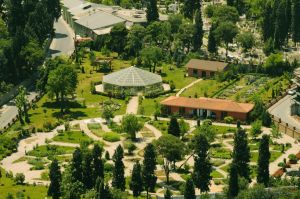

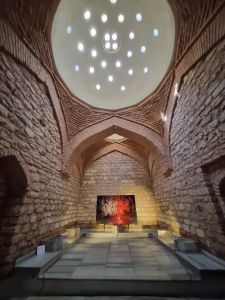
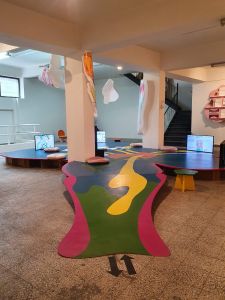
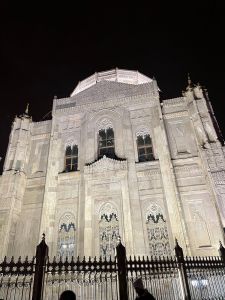
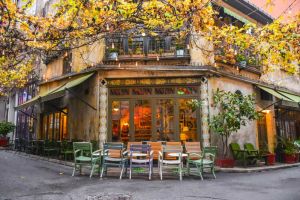
Değerlendirmeler